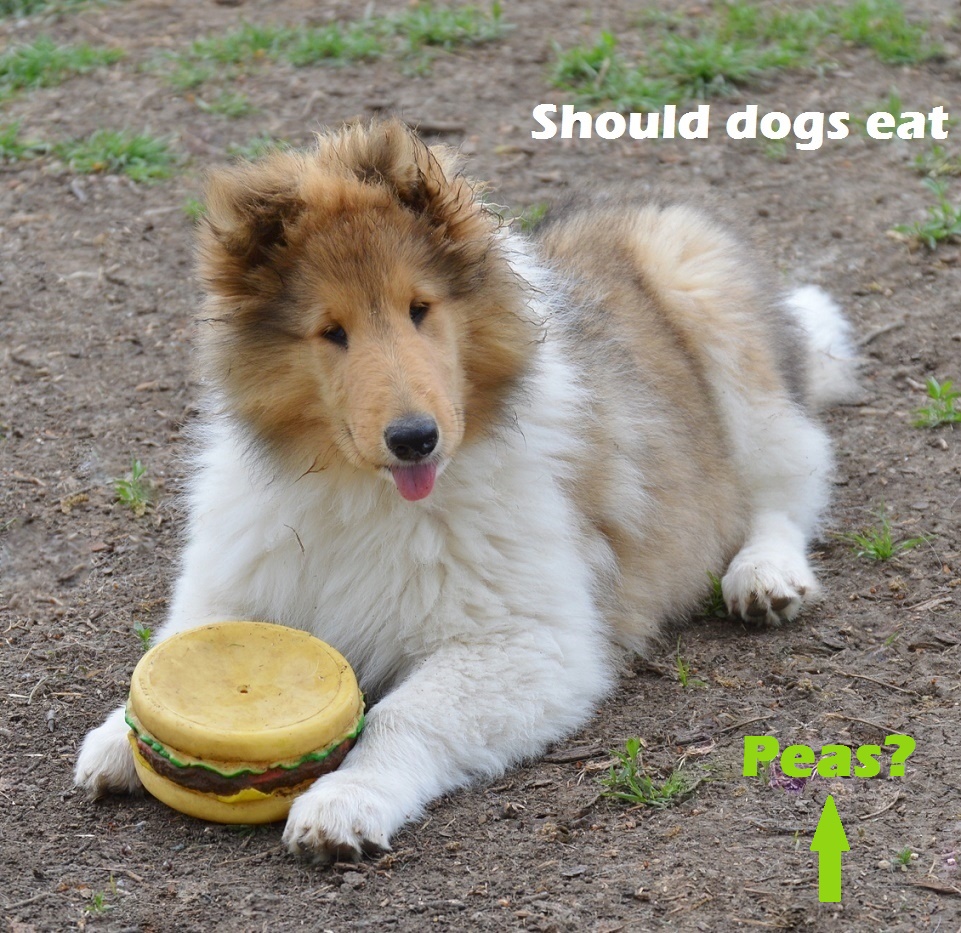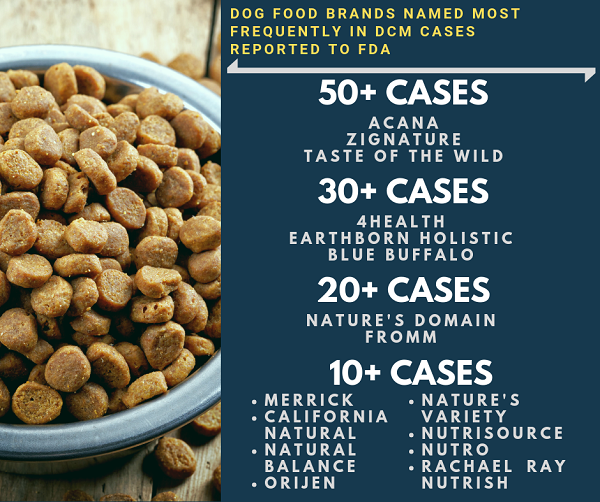
I don’t want no stinkin peas!
I find nutrition to be a fascinating subject. I’m no nutrition expert, but I have been exploring topics on nutrition for over 40 years. Whatever I hear, whatever I read, I’m left with more questions than answers. It’s amusing that so called nutrition experts proclaim such conflicting “facts” and theories. Who has it right in the diet debates? Weight Watchers or Nutrisystems? Should we all eat a vegan diet, or should we go the Paleo route? I’m in favor of the Ice Cream Diet, but I have never lost weight doing that! I was taught about the food pyramid in school, and too much FAT WAS BAD! Now the popular Keto diet calls for a diet in which fat is the predominant source of calories. Whether you are talking about humans, horses, or dogs, I believe we have to keep in mind that a diet or food that one animal will thrive on may not work for another individual of the same species.
When I started raising my own dogs to show several decades ago, I fed wheat based Ken L Ration Biscuit mixed with meat scraps from the slaughterhouse, or some KalKan if I didn’t have fresh meat. Ken L Biscuit was a highly recommended food for show dogs. Now, dog foods containing wheat, corn, and soy are frequently shunned by dog owners up on the current trends in foods for Fido. The grain free stamp became a status symbol for dog foods.

Broken hearts- The link between grain free dog foods and DCM
The following information was taken from the FDA Center for Veterinary Medicine (CVA)’s June 2019 update and a report in Today’s Veterinary Practice.com. A link has been found between certain diets and canine heart disease- specifically Dilated Cardiomyopathy (DCM)
The University of California, Davis, veterinarians led a team that found a link between some popular grain-free, legume-rich dog diets and a type of nutritional deficiency and canine heart disease known as taurine-deficient dilated cardiomyopathy. The study was recently published in the journal PLOS ONE.
Researchers found dogs eating some of these “boutique” diets are not making or maintaining enough taurine, an amino acid important for heart health. Taurine deficiency has been known for many years to lead to dilated cardiomyopathy, or DCM, a heart muscle disorder that can lead to congestive heart failure and death.
Pet foods containing peas, lentils, other legume seeds, or potatoes as main ingredients, are what’s being linked to DCM, which leads to reduced heart pumping function and increased heart size. The alterations in heart function and structure can result in severe consequences such as congestive heart failure or sudden cardiac death. While the most common cause of DCM is genetic, on rare occasions other factors can also result in the condition, particularly in breeds that are not frequently affected.
The disease is now showing up unexpectedly in other breeds, such as the golden retriever. Last year, the U.S. Food and Drug Administration issued an alert to pet owners and veterinarians about the potential association grain free diets, which have become quite trendy, and DCM. The FDA continues to research this issue in an effort to help identify the exact dietary factor causing the problem.
Most of the millions of dogs in the US do not develop DCM. The FDA released some preliminary findings based on 524 case reports. Surprisingly, the FDA even released the names of specific dog food companies that were listed in ten or more cases of DCM.

The veterinary division of the FDA examined labels of products reported in DCM cases to determine whether the products were grain-free, and whether the products contained peas, other lentils including chickpeas and beans, or potatoes (including sweet potatoes). More than 90 percent of products were “grain-free,” and 93 percent of reported products contained peas and/or lentils. A far smaller proportion contained potatoes.
This study is ongoing. Definitive answers about the problem of DCM and its relationship to canine diets are still being sought. Apparently DCM can be caused by a dietary deficiency of taurine. Taurine is found in meat. An excellent source of taurine is found in MEAT BY-PRODUCTS- LIKE HEART AND KIDNEY! I think this shows that people should not turn up their noses when meat by-products are included in dog food- if the by-products include quality organ meats.
Ideally, I believe strongly that dogs, as carnivores, do thrive on a diet rich in meat. A 100% meat diet will lack some nutrients such as calcium, but most studies and common sense itself indicate that dogs need meat. Dogs have teeth suited for tearing meat, and a short digestive tract. Dogs don’t spend many hours like cows do to glean nutrition from fibrous plants through an extended digestive process.
One of the problems with feeding dogs a diet rich in meat is that it is EXPENSIVE! I’m sure that is why dog food companies, especially in the past, mixed their meat and bone meal with wheat, corn, soy and other carbohydrates to make various forms of dog food kibble. Mom could not afford to break the grocery budget on Fido’s bag of Gravy Train. Economic necessity and the ability to make a fairly stable dog food pellet created a product combining inexpensive carbohydrates like wheat or corn with a protein source, some fat, and a few vitamins and minerals thrown in for good measure.
I’m beginning to understand why WHEAT, CORN, AND SOY became the trio of ill repute. Corn has definitely lost favor because apparently it is nearly impossible to get non-GMO corn in America now. I guess the GMO (genetically modified) corn so widely grown through our land has managed to cross pollinate the plain old regular corn to a large degree.
Dogs evolved along with humans in their ability to digest wheat products, but something new has been added! Today’s American wheat is not the wheat of our grandparents. To even the ripening process in the wheat fields, farmers use products such as Round UP to promote desiccation of the wheat- making harvest easier. Some fields are also sprayed with herbicides before and after planting is done to combat weeds. This chemical assault causes a large percentage of American wheat, corn, soy, and other farm products to incorporate the herbicides in the plants as they grow. These chemicals we now consume are called GLYCOPHATES. You cannot wash the glycophates off the plants. Glyphosate is known to inhibit something called the cytochrome P450 (CYP) enzyme. This enzyme has many important functions in maintaining homeostasis in humans and other animals- especially regarding gut health and immunity. Consumption of glycophates is is thought to cause a host of disorders including everything from autism, and heart disease, to diabetes, infertility and cancer. And as if Roundup alone was not toxic enough- it is also available combined with AGENT ORANGE to make the product called ENLIST DUO that’s used on crops like corn, soy and cotton. Glycophates in our food and water supplies is so widespread that it would be hard to find a human or animal that did not already have it accumulated in their tissues.
I’m not sure of all the reasons that dog food companies started changing formulas, and began promoting GRAIN FREE products, but I think the ultimate goal might be more devious than you think. Have extremist groups like PETA infiltrated dog food companies to combat dog breeders? I wonder.
Without inexpensive fillers, dog foods are too expensive for the average pet owner. In their search for a different cheap filler, some genius came up with using PEAS. Now, peas are in almost ever line of dog foods you care to research. Peas, pea protein, pea starch– maybe all three! And if not peas, they have gone to adding lentils, chick peas, various other beans, etc. Some dog food companies are still adding soy, also a bean, to save money on the foods they produce. Soy is often notoriously contaminated with GLYCOPHATES, and other PHYTOESTROGENS.
GLYCOPHATES are bad, but they are only one class among numerous other environmental contaminants that are causing fertility and overall health problems worldwide. Scientists have been reporting declining fertility in all sorts of animals from tigers to eagles, to humans and dogs for decades. By-products from PLASTIC tend to break down into estrogen mimicking, endocrine disrupting, or carcinogenic chemicals such as PFB’s and PFA’s. Are you consuming your food and drinks from plastic containers? Are your dogs?
We live in a world completely different than our ancestors of just 100 years ago regarding the levels of toxic environmental pollutants. We have not only contaminated our soil, but we have contaminated many fresh water supplies with various chemicals including some chemicals added to drinking water on purpose. Chloramine (chlorine with ammonia) and chlorine are added to drinking water to kill microorganisms. It’s great that we no longer have much of a problem with killers such as cholera, but we have traded killing pathogenic microbes for contaminating our water with chlorine disinfection products that harm us with slower acting poisons. Everything that goes down our drains, from the kitchen sink to storm drains eventually becomes part of our soil and water sources. Even innocent looking household detergents can add to the ever growing estrogen like chemical load that flows into our rivers and streams.
If you are worried about our soil and water now– take a deep breath. Or maybe not if you are in heavy traffic-, or near some one burning trash, or heaven forbid -a factory smoke stack. Dioxins are produced by burning oil, gas, trash, wood, coal, etc, and become part of the air we breathe.
An excellent study on canine fertility was done by Dr. Richard Lea and colleagues over a 26 year period from 1988 to 2014 in England with 5 different breeds of dogs- Labrador Retreivers, Golden Retreivers, Curly-coated Retreivers, Border Collies, and German Shepherds. The dogs were raised and trained to become service dogs for disabled people. The data showed a steady decline in male fertility of 30%, with a 10 fold increase in males with undescended testicles. Human fertility studies are showing similar declines.
Another short term study shows evidence that the phytoestrogens from soy products in dog food may also be interfering with endocrine and adrenal function.
Flax, flaxseed, flax oil, etc. may also be problematic for the overall health of dogs. Some preliminary studies suggest that flax products may produce less than optimal function of the endocrine system. I used to be a fan of flaxseed oil for my human family and our dog family, but I have definitely changed my mind. Besides flax being a source of phytoestrogens- the main reason I am now anti-flax has to do with the way flaxseed oils are metabolized in our and our dogs’ bodies. Dog food companies tout flax as a great source of Omega fatty acids. The most beneficial, anti-inflamatory essential fatty acid is Omega 3, docosahexaenoic acid (DHA). Flax, as well as hemp, pumpkin seeds, and walnuts are good sources of alpha lineolic acid (ALA), but NOT DHA. Proponents of flax and other plant sources of essential fatty acids point out that the ALA can be converted to the desirable Omega 3 fatty acid- DHA, Unfortunately, less than 0.5 % of the ALA in flax is actually converted to DHA in the body!!! The only effective direct sources of the very important DHA come from seafood- especially fish and marine algae.
Another key to nutritional balance is the ratio of omega 6 fatty acids and omega 3 fatty acids. Omega 6 fatty acids are relatively plentiful in protein sources like chicken, beef and pork. Fish, krill, squid, and marine algae are the main sources of omega 3 fatty acid DHA. As the marine sources are even more expensive than the land animal protein sources, most diets are heavily skewed to the Omega 6 side and short on Omega threes. Consumption of a diet lacking Omega 3’s and overdone with Omega 6 fatty acids is thought to promote inflammation in the body -which could contribute to many problems.
The huge difficulty I find these days is finding a dog food without peas, or any type of legume. The majority of dog foods- especially the premium dog foods contain some kind of pea or bean product. Cheap and not so cheap dog foods often contain soy too. Finding a dog food without peas AND without FLAX is nearly impossible.
I don’t work for a dog food company, so the foods I recommend are just my opinion. Here is what I have come up with so far for my dogs.
I really love the SPORT DOG FOOD line. This family owned dog food company in Long Island, NY seems to really care about providing great nutrition for working dogs. All the formulas are pretty high in calories. They offer a variety of formulas. All of their foods are pea/ legume free and flax free. I trust they are trying to do things right. I have used the CUB formula and the Tracking dog formula a lot. The only issue I have with their food is that my picky eaters do not eat it very well without enhancements. Their foods are available from www.sportdogfood.com , as well as Chewys and Amazon.
The food I mainly use currently is First Mate Performance. I get it from Chewys online. It is chicken and fish based and appropriate for puppies and active adults. It is a high calorie food free of corn, wheat, soy and flax.
Another food I use and recommend is Evanger’s Classic Chicken and Brown Rice formula. I will not use Evanger’s grain free line, but I do like the formula I mentioned. You can order it from Chewys.
It is hard to find legume and flax free foods for now. Hopefully dog food companies will be changing some of their formulas soon.
One company that deserves special mention is Purina. They have probably done more nutrition research and testing than any other dog food company. Some of the ingredients listed in their dog foods make me cringe. Animal digest??? Is that road kill soup? It creeps me out. Purina offers so many, many foods. Purina’s fairly expensive ProPlan line has millions of fans and apparently many dog breeders have great success with some of the ProPlan formulas- in particular the ProPlan Sport Performance foods. It is hard to argue with success. Even though ProPlan has some ingredients I don’t like, I think they have some great things going for them. #1. I have been told that Purina is very careful of the source of their products and test the actual fields where their ingredients are grown for harmful chemicals. If that’s true- it is awesome! #2.- The other good thing is that Purina does not use flax in their foods- from what I have seen.
One of my issues with Purina is that they also make some foods that are generally regarded as nutritionally awful- such as Beneful -when they know better.
This blog is my own opinion I have reached from reading reports on the internet, from talking to other dog breeders, and from my own experience. I am open to learning from new information as it becomes available. I want my dogs to be healthy and live long, happy lives. They give us so much. When they are jumping around anxious for dinner, I don’t want to hand them a pan of poison.

Thank you , Debbie and Tairis collies! I will be showing this article to my vet and neighbors -(at least I’ll try to) not very good on the computer. I could just give them your web-site and they could find it themselves…(not sure that would work with Dr. Morehaus-Feather’s vet)
So lucky to have found you –Breeder of Merit for sure!